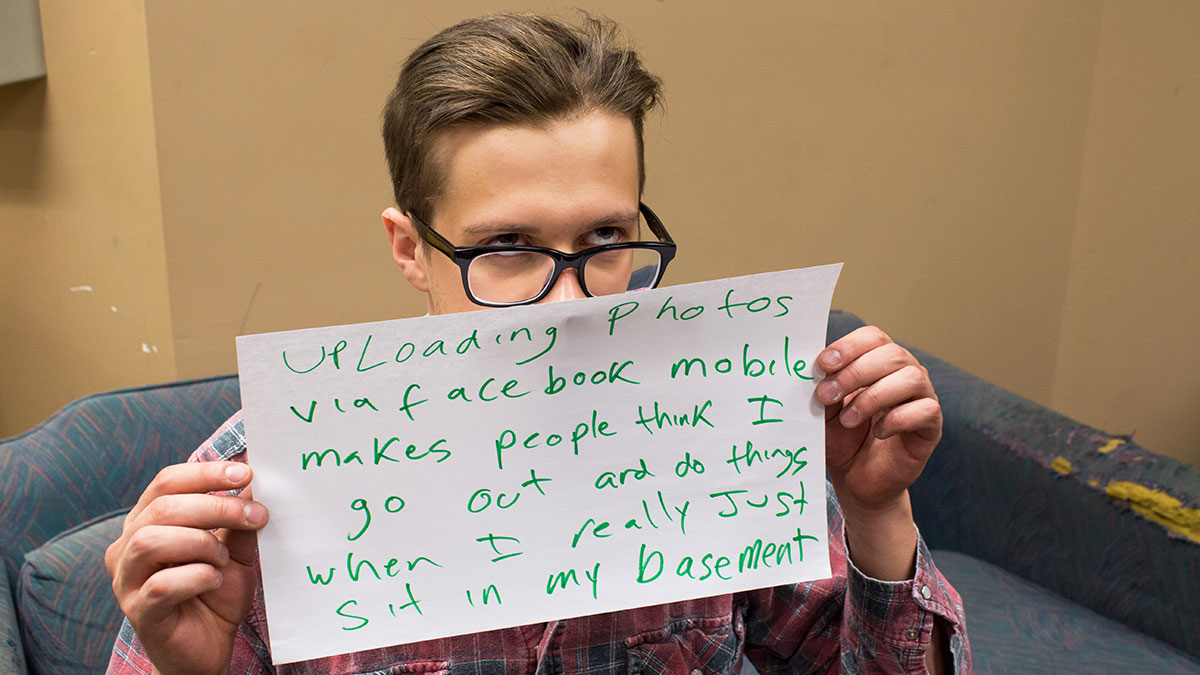 Christina Varvis
Christina VarvisIt happens to the best of us. A date is going perfectly and the two of you couldn’t be getting along more famously. The next step is obviously to extend an invitation to go back to your place, so you do. But somewhere between discussing your favourite Tom Hardy performance and engaging in what my mother calls “the dirty,” your date is laughing at you and you can’t help but feel that this is somehow unfair. I’m here to tell you that you’re right. It’s unacceptable.
I am, of course, talking about the phenomenon of “basement-dweller-shaming.” If you have experienced it, you know all too well about the intense pain it can inflict on a person. This hateful, immature act of ridiculing men who still live at home and reap the rewards of a rent-free life is rude and harmful.
The reality of the situation is daunting. Laughter, mockery, confusion, and outright disgust are all reactions becoming much too common as a response. How is something like this possible? In this progressive, politically correct world, the fact that something this abhorrent can be taking place seems ludicrous, almost farcical. It is, much to the chagrin of those targeted, all too real.
It seems as though dealing with this issue has taken a backseat to seemingly more “important” problems. Distractions such as the conflicts in the Middle East, supposed economic instability, and the growing concern about security vs. personal freedom (the “niqab debate”) have all unfortunately stolen the public attention that the basement-dweller-shaming phenomenon so badly needs.
“Basement-dweller” is a term that needs to be re-evaluated. Activists campaigning in favour of these marginalized individuals point to the alternative and more politically correct term of “stay-at-home son.” This positive outlook argues for a new understanding of the lifestyle and a forward-thinking attitude.
Experts in the field suggest re-educating the population-at-large in order to help erase some of the stigma these men face on a daily basis. They encourage people to identify stay-at-home sons as “financially savvy” as opposed to “ungrateful mooches” and to characterize this group’s behaviour as “challenging hegemonic orthodoxy” instead of “antisocial.” Grungy bedrooms should be seen as an expression of collective identity and an important part of the culture rather than as signs of laziness.
One scholar wants the public to see the positives in the stay-at-home lifestyle. He points to the incredible wealth of knowledge and ingenuity many of these stay-at-home sons possess as they spend countless hours watching TV series after TV series. Surfing the web endlessly allows these men to contribute to society by being highly skilled trivia game experts, and one cannot forget to mention that stay-at-home sons were pioneers in innovating a t-shirt to be used as both a plate and a napkin. For this we owe them the recognition they have not yet received. There is much more to a stay-at-home son than meets the judgmental eye.
In this writer’s humble opinion, the role of the stay-at-home son needs to be re-evaluated in our society. It is clear that past concerns are unfounded and prejudices unrealistic. Rather than putting these brave and honourable men down, we must propel them into the mainstream. They should not only be fully integrated into our society, but celebrated as paragons for the advancement of our culture.




